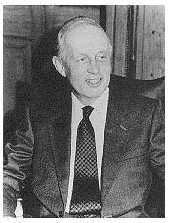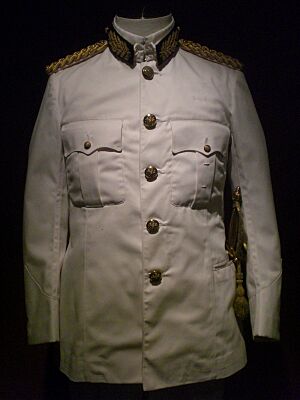Edward Youde facts for kids
Quick facts for kids
Sir Edward Youde
|
|||||||||||
|---|---|---|---|---|---|---|---|---|---|---|---|
 |
|||||||||||
| 26th Governor of Hong Kong | |||||||||||
| In office 20 May 1982 – 5 December 1986 |
|||||||||||
| Monarch | Elizabeth II | ||||||||||
| Chief Secretary | Philip Haddon-Cave David Akers-Jones |
||||||||||
| Preceded by | Murray MacLehose | ||||||||||
| Succeeded by | David Wilson | ||||||||||
| Ambassador from the United Kingdom to the People's Republic of China | |||||||||||
| In office 29 August 1974 – 15 June 1978 |
|||||||||||
| Monarch | Elizabeth II | ||||||||||
| Preceded by | John Addis | ||||||||||
| Succeeded by | Percy Cradock | ||||||||||
| Personal details | |||||||||||
| Born | 19 June 1924 Penarth, Wales |
||||||||||
| Died | 5 December 1986 (aged 62) British Embassy, Beijing, China |
||||||||||
| Resting place | Canterbury Cathedral, England | ||||||||||
| Spouses |
Pamela Fitt, Lady Youde
(m. 1951) |
||||||||||
| Children | 2 | ||||||||||
| Alma mater | University of London | ||||||||||
| Profession | Diplomat, sinologist, colonial administrator | ||||||||||
| Military service | |||||||||||
| Branch/service | Royal Naval Reserve | ||||||||||
| Unit | Reserves | ||||||||||
| Chinese name | |||||||||||
| Chinese | 尤德 | ||||||||||
|
|||||||||||
Sir Edward Youde (born June 19, 1924 – died December 5, 1986) was an important British diplomat and leader. He was known for understanding Chinese culture and language. Sir Edward served as the Governor of Hong Kong from 1982 until he passed away in 1986.
Contents
Early Life and Education
Sir Edward Youde was born in Penarth, a town in South Wales, United Kingdom, in 1924. He studied at the School of Oriental and African Studies at the University of London starting in 1942. During this time, he also served in the Royal Naval Reserve.
A Career in Diplomacy
Joining the Foreign Office
In 1947, Youde began his career at the Foreign Office. This is where he would work for the rest of his life. His first assignment was at the British embassy in Nanking, which was then the capital of the Republic of China.
The Amethyst Incident
In 1949, during the Chinese Civil War, a British ship called HMS Amethyst was attacked. This happened while it was sailing on the Yangtze River. The ship was badly damaged and got stuck.
Edward Youde used his excellent Mandarin Chinese skills to talk with the Chinese army commander. He tried to get the Amethyst released. Even though his talks didn't work, he bought enough time for the ship to plan a secret escape to Hong Kong. For his brave actions, Youde was given an award called the Member of the Order of the British Empire (MBE).
Serving Around the World
After the civil war, Britain recognized the People's Republic of China. The British embassy moved to Beijing. Youde worked in China four times in total. His last role there was as the British ambassador from 1974 to 1978.
He also worked in Washington D.C. from 1956 to 1959. Later, he was part of the British team at the United Nations from 1965 to 1969. In 1977, he was knighted, which means he received the title "Sir."
Leading Hong Kong
Becoming Governor
Sir Edward Youde became the Governor of Hong Kong in 1982. He wanted to improve Hong Kong's education system. At that time, Hong Kong only had two main universities. Only a small number of high school students went to university there.
Expanding Education
To fix this, Youde helped create the City Polytechnic of Hong Kong. This is now known as City University of Hong Kong. He also helped start the Hong Kong Academy for Performing Arts. He even had the idea for a special high school. This school would help students develop their talents in sports and arts alongside their regular studies. This idea led to the founding of the Jockey Club Ti-I College in 1989.
Economic Focus
In October 1982, Youde gave his first major speech to the Hong Kong Legislative Council. He said he wanted to create a place where people could use their energy and ideas to succeed. He believed the government should only step in if things went wrong or if Hong Kong's reputation was at risk.
Even though Hong Kong's economy was struggling, he personally led trade trips. He visited countries like the United Kingdom, Japan, the United States, and China. His goal was to encourage more trade for Hong Kong. He also introduced new laws to control and oversee banking, insurance, and other financial industries.
The Future of Hong Kong
Youde is especially remembered for his role in talks about Hong Kong's future. He helped negotiate the Sino-British Joint Declaration, signed in Beijing in 1984. This agreement made it clear that Britain would leave Hong Kong in 1997. This would end 156 years of British rule.
To prepare for this change, Youde started political reforms. He wanted to help Hong Kong develop a more representative democracy. In 1984, he released a plan for Hong Kong's democracy. This plan included having some members of the Legislative Council elected by voters. On September 26, 1985, Hong Kong held its first indirect election for the Legislative Council. This was the official start of Hong Kong's representative government system.
However, many people in Hong Kong worried about the future. Some big companies, like Jardine Matheson, moved their main offices out of Hong Kong. This made people even more concerned. Youde also had to deal with many people leaving Hong Kong. This happened because Hong Kong citizens were not offered British citizenship during the handover. Many people moved to Canada, Australia, and the United Kingdom.
Youde was the only Governor of Hong Kong from Wales. People liked him for his kind nature and admired his great knowledge. He loved Chinese literature and language. He even read several Chinese newspapers every day.
Death and Legacy
Passing Away in Office
Sir Edward Youde sadly passed away during a visit to Beijing. He had a heart attack in the British Embassy on December 5, 1986. He was the only Governor of Hong Kong to die while still in office.
A State Funeral
His funeral was Hong Kong's first state funeral with full military honors. Many people lined the streets to pay their respects. His casket was carried by ten guardsmen. A 17-gun salute was fired. Youde was cremated, and his ashes were placed at Canterbury Cathedral in England. A special plaque was put there to remember him.
Remembering Sir Edward Youde
After his death, a special fund was created called the Sir Edward Youde Memorial Fund. This fund helps students in Hong Kong with scholarships and sponsorships. To get help from the fund, students must be good at both English and Chinese.
The Edward Youde Aviary in Hong Kong Park was named after him in 1992. This was because he enjoyed birdwatching. The Pamela Youde Nethersole Eastern Hospital in Hong Kong was named after his wife, Pamela.
A plaque in his memory was placed on the wall of St John's Cathedral in Hong Kong. Another plaque is at Canterbury Cathedral.
Family Life
Sir Edward Youde married Pamela Fitt. They had two daughters named Jennifer and Deborah.
 | Selma Burke |
 | Pauline Powell Burns |
 | Frederick J. Brown |
 | Robert Blackburn |


